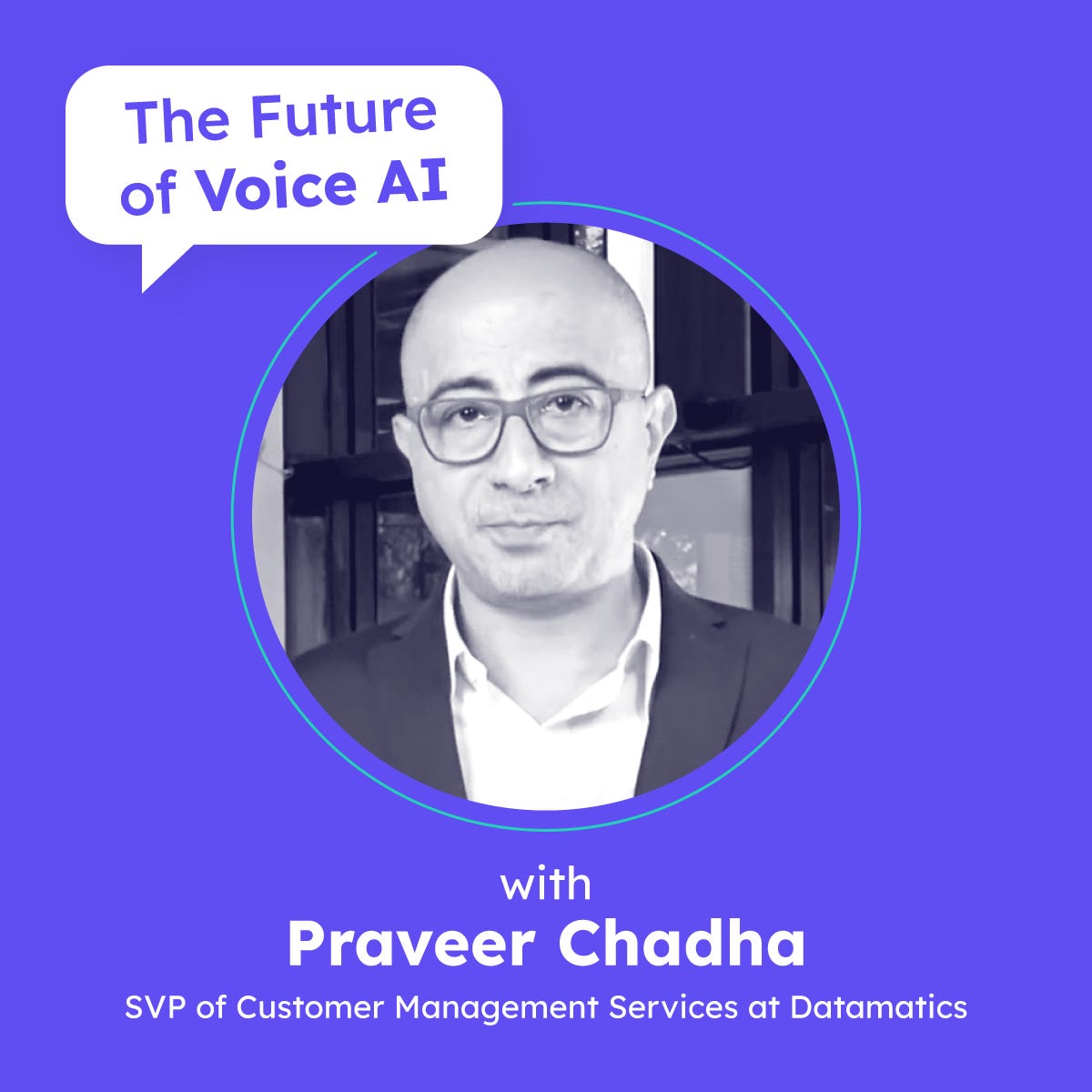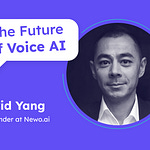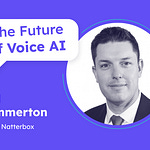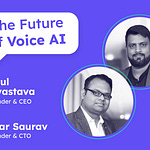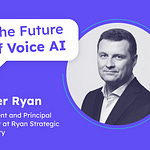In The Future of Voice AI series of interviews, I ask three questions to my guests:
- What problems do you currently see in Enterprise Voice AI?
- How does your company solve these problems?
- What solutions do you envision in the next 5 years?This episode’s guest is Praveer Chadha of Datamatics.
Praveer has more than 18 years of experience in Transformation, Operations, New client Acquisition, Sales, Client and Account Onboarding/Transition including Project Management, Training, Performance Improvement and Quality.
Five years after earning his degree in Economics, Praveer set out building his solid foundation of service with Wipro BPO in New Delhi. His experience in managing operations and a sound understanding of Six Sigma enabled him to successfully manage and transform operations across various verticals including Insurance, Healthcare, Retail, Banking & financial services for India, South Africa, US and Philippine markets.
Praveer has been leading transformational changes across business relying on new age tech, and a strong P&L focus coupled with client centric delivery.
Datamatics enables enterprises to go Deep in Digital to boost their productivity, customer experience, and competitive advantage. Datamatics’ portfolio spans across three pillars including Digital Technologies, Digital Operations, and Digital Experiences. It has established products in Intelligent Document Processing, Robotic Process Automation, AI/ML models, Smart Workflows, Business Intelligence, and Automatic Fare Collection. Datamatics caters to a diverse global clientele across Banking, Financial Services, Insurance, Healthcare, Manufacturing, International Organizations, and Media & Publishing. The Company has a presence across four continents with significant delivery centers in the USA, India, and the Philippines.
Recap Video
Takeaways
Voice AI in contact centers is here to stay and it is the way forward.
Current challenges include concerns about hallucination, data privacy, and impact on customer experience.
There's a lot of talk about AI implementation, but they still need to be fully deployed.
Contact center managers are afraid of changing operations, but executive teams are all in and see the big picture.
Praveer sees three levels of AI impact:
Customers: AI provides faster, more accurate resolutions, reducing touchpoints and simplifying interactions.
Agents: AI tools assist agents by handling simpler tasks and offering real-time support, making their jobs easier and reducing burnout.
Company: AI lowers operational costs and generates valuable data insights, enhancing overall efficiency and improving strategic decisions.
In the next few years, companies must adapt to AI or become Xerox and risk going out of business.
Praveer recommends treating AI as an investment in CapEx and letting it appreciate.
Properly implemented AI can reduce contact center costs by 30-40% by automating routine tasks, reducing the need for as many human agents and lowering training costs.
Most customer calls are not value-add, they are failure-demand stemming from customer issues.
The goal is to create a frictionless customer experience with AI, and AI should optimize channels for customer interactions.
Effective AI integration requires a seamless escalation path to human agents.
Voice AI can assist with real-time translation, making communication easier across languages and regions.
SuperCX is Datamatics' solution for transforming contact centers into AI-led operations.
Their goal is make contact centers more efficient, reducing the need high agent volumes while retaining customers and reducing costs.


